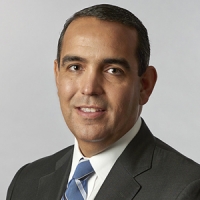
by Enrique Gonzalez, III
On December 15, 2015, the American Job Creation and Investment Promotion Reform Act of 2015’s enactment was postponed for consideration. In its place, a simple extension of the EB-5 program will be implemented, without change, until September 30, 2016. The Act sought to reauthorize the EB-5 Regional Center Program in order to promote and reform foreign capital investment and job creation in American communities. This Act specifically targeted those immigrant investors (and the eligible spouses and children of such immigrants) pooling their investments with one or more qualified immigrants participating in Regional Center Programs in the United States. The Act contained six new provisions detailing the proposed EB-5 procedural changes, and these provisions will be briefly outlined and discussed below.
The most noteworthy changes to the EB-5 Regional Center Program through this Act would have been significant increases in the amount of capital necessary to invest in the United States and to file an EB-5 petition, limitations on the immigrant investors who can apply, new provisions requiring compliance with U.S. Securities laws, limitations on the sources of funds for investment, the creation of an EB-5 integrity fund, and the redefinition and substantial restriction of ‘targeted employment areas.’
Premium and Timely Processing
Under the Immigrant Investor Pilot Program, a qualified EB-5 regional center investor was required to submit a $6,230 filing fee for the I-924 petition. Under the proposed Act, this filing fee would be increased by $10,000—making the new filing fee $16,230, in addition to the increase in the minimum capital for investment in the regional center.
Premium Processing would be available, for the first time, for the expeditious processing of immigrant investor petitions for a $1,000 fee, subject to adjustment.
In addition to the filing fee payments, each regional center petition would also be required submit a $2,000 integrity fund fee.
Limitations on Who Can Apply
In general, any individual wishing to participate as an investor under the Regional Center Program proposed in this Act would be required to pass a background check to verify that they do not have any criminal or civil violations involving deceit within the previous ten years, any civil violations resulting in a liability in an excess of $1 millioninvolving fraud or deceit, or a crime resulting in a conviction with a term of imprisonment of more than one year.
Any person subject to a final order of a State securities commission or the SEC, or another similar body, based on a violation of any law or regulation that prohibits fraudulent, manipulative, or deceptive conduct, or bars the person from association with an entity regulated by such as commission, engaging in the business of securities, insurance or banking would not be eligible for admission.
Finally, any person who has engaged in the trafficking of any illicit or controlled substance, espionage, sabotage, intellectual property theft, money laundering, terrorist activities, facilitating human trafficking and human rights offenses, or violation of any regulations regarding foreign financial transactions would not be eligible for admission.
The Secretary would retain the authority to suspend or terminate the designation of any regional center, or participation under this program, of any new commercial enterprise or job creating entity that knowingly engages a person in violation of the program based on the aforementioned bars to eligibility.
Compliance with Securities Laws
The United States has jurisdiction over the purchase or sale of any security offered or sold by any regional center or any party associated with a regional center. A regional center and affiliated parties would not be precluded from offering or selling a security pursuant to Regulation S under the Securities Act to the extent that the offering or selling is in compliance with the regulation.
Participating regional centers would be required to provide certifications that, after a due diligence investigation, determine that the regional center is in compliance with the securities laws of the United States, and has implemented policies and procedures internally to ensure its continued compliance with those laws. Regional centers would be required to reissue this certification annually.
Where regional centers have violated securities regulations, the certifier for the regional center would describe the noncompliance and the actions taken to remedy the noncompliance. The Secretary would then maintain the discretion to suspend or terminate the regional center’s designation, or impose sanctions.
Effective Dates
Effective upon the date of enactment, the amount of capital necessary to invest in a regional center project in a targeted employment area (previously $500,000) would be increased to $800,000, and $1 million for non-targeted employment areas. Petitions that were filed prior to the date of enactment would not be subject to this capital investment increase.
Five years after enactment, the Secretary would be given the discretion to adjust the minimum amounts required for investment. If were no increases in the minimum amount during the five prior fiscal years, the minimum amounts would be automatically adjusted by the amount of cumulative percentage change in the Consumer Price Index (CPI-U) for the previous five fiscal years (rounded to the nearest multiple of $10,000). If the Secretary increased the minimum amount during the previous five years by an amount that is less than the cumulative percentage change in the CPI-U, the minimum amounts would be automatically adjusted by the amount of such cumulative percentage change for such period minus any increase previously designated by the Secretary (rounded to the nearest multiple of $10,000). If the Secretary increased the minimum amount during the previous five fiscal years by an amount that is greater than the cumulative percentage change in the CPI during the previous five fiscal years, the minimum amounts would not be increased.
Source of Funds
Gifted funds would only be counted toward the minimum capital investment requirement if they were gifted to the immigrant investor by a spouse, parent, son or daughter. Capital derived from loans may be counted toward the minimum capital investment if the loan was secured by assets owned by the immigrant investor and was issued by a banking or lending institution that is properly chartered or licensed, which would be verified by the Secretary. No foreign government entity would be permitted to provide capital to, or be directly or indirectly involved with the administration of a regional center, a new commercial enterprise, or a job-creating entity.
EB-5 Integrity Fund
With this Act, an EB-5 Integrity Fund would be established in the United States Treasury to be used to conduct audits and site visits, investigate fraud, determine regional center compliance with applicable laws, and conduct interviews with affiliated parties in the regional center program.
Each designated regional center would be responsible for the $25,000 Integrity Fund annual fee. The fee would be reduced to $10,000 if a regional center has 20 or fewer total investors in the preceding fiscal year in its new commercial enterprises.
Redefining ‘Targeted Employment Areas’
The Secretary would establish a process by which regional centers may request a designation as a targeted employment area which may be renewed for additional two-year periods, if the area continues to meet the definition of a ‘targeted employment area’ (that is, a priority urban investment area, a rural area, or a special investment zone). The Secretary would establish a fee to process these requests within 60 days of the designation request submission.
Under this Act, the definition of ‘rural area’ would be narrowed to those areas outside the outer boundary of any city or town having a population of 20,000 or more, and is within any census tract that is greater than 100 square miles in area with a population density of less than 100 people per square mile.
The definition of ‘special investment zone’ would be substantially restructured, and now is defined as an area consisting of (1) a city or county that has an unemployment rate that is at least 150 percent of the national average or (2) a census tract, or not more than 12 census tracts, that have an unemployment rate that is 150 percent of the national average, may not include a census tract in which the project is not physically located, may not include special land use census tracts encompassing public parks, forests, large bodies of water, or those with primarily non-commercial or non-industrial use. Even more restrictive, the special investment zone would not include more than one census tract in which the project is not primarily physically located.
Upon enactment, the number of visas set aside for investors in targeted employment areas would be 2,000 for immigrants who invest in rural areas, and 2,000 for immigrants who invest in priority urban investment areas.
Conclusion
Ultimately, these changes would have significantly impacted future EB-5 petitions being submitted by immigrant investors looking to invest under a Regional Center Program. However, as the proposed Act was postponed for consideration until September of next year, and instead, an extension of the existing EB-5 Program was implemented without any changes, the EB-5 Immigrant Investor program remains the most attractive program available to immigrants wishing to invest in the United States and secure a pathway to permanent residency.
DISCLAIMER: The views expressed in this article are solely the views of the author and do not necessarily represent the views of the publisher, its employees. or its affiliates. The information found on this website is intended to be general information; it is not legal or financial advice. Specific legal or financial advice can only be given by a licensed professional with full knowledge of all the facts and circumstances of your particular situation. You should seek consultation with legal, immigration, and financial experts prior to participating in the EB-5 program Posting a question on this website does not create an attorney-client relationship. All questions you post will be available to the public; do not include confidential information in your question.







